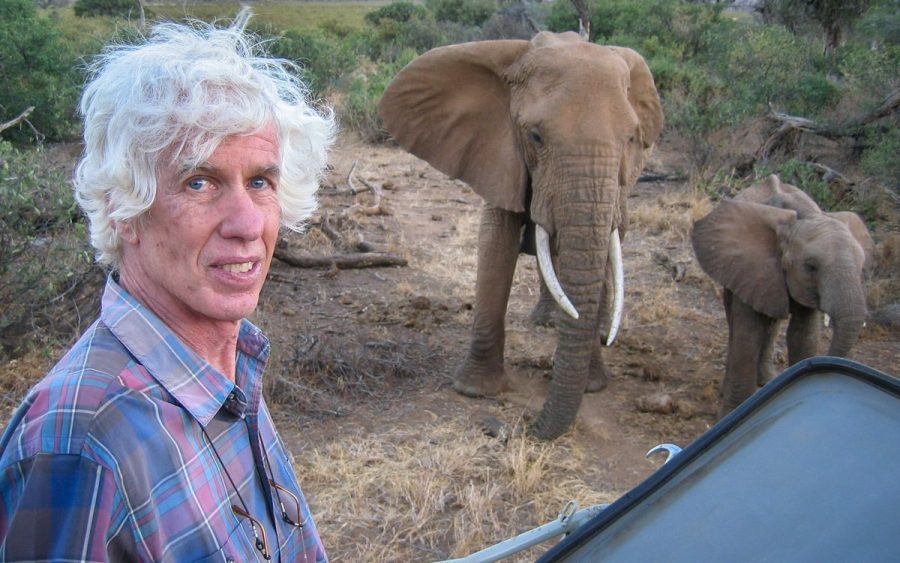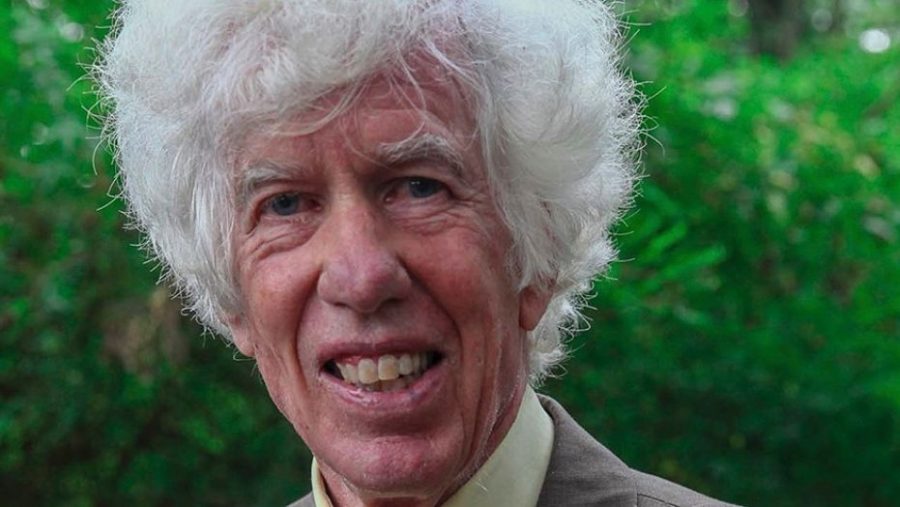American investigator, Esmond Martin, was found dead with a wound in the neck in his house in Kenya. He spent years trying to expose the worldwide underground ivory trade that threatens elephants rhinos with extinctions.
Martin, 75, was a former U.N special envoy for rhino conservation. He was found dead in his bed by a family member who went to check on him in his house since he wasn’t picking up the phone. The police in Kenia haven’t made an arrest nor do they have a suspect.

“Shocked and very sad to hear of the death of Esmond Bradley Martin. A passionate and committed man who made a big difference to our planet. May he rest in peace” tweeted British High Commissioner to Kenya Nic Hailey
Was Martin victim of a failed robbery or something more?
Esmond Martin was known for his undercover work trying to discover what is going on in the ivory trade. He had put his own life at risk to document illegal sales in distant parts of the world. Martin often posed as a buyer to obtain details of the illicit market of ivory. He had recorded illegal actions involving ivory that passed across the borders. He also took pictures of ivory shops and illicit carvings.
He was just returning from a trip to Burma and was about to write down his findings.
His body was found when Martin’s wife, Chryssee Martin, went to his house to check on his after becoming worried because Martin wasn’t answering her calls. She found him in the afternoon with a stab wound. According to the police, Martin was the victim of a botched robbery. The investigation will continue.
“Esmond was a true giant of conservation and a champion for African elephants and rhinos,” U.S. Ambassador to Kenya Robert Godec said in a statement. “His extraordinary research had a profound impact and advanced efforts to combat illegal wildlife trafficking across the planet.”
According to Conservationist Paula Kahumbu, Martin had enough information to expose ivory traffickers in the United States., Congo, Vietnam, Nigeria, Angola, China, and Burma. All of this suggests there might be something else going on with Martin’s death.
“Esmond was at the forefront of exposing the scale of ivory markets in USA, Congo, Nigeria, Angola, China, Hong Kong, Vietnam, Laos and recently Myanmar. He always collaborated with Save the Elephants and worked with many of us generously sharing his findings & views. Esmond was a global authority on ivory and rhino horn trafficking. We send our deepest condolences to his wife. RIP Esmond, pachyderms have lost a great champion,” tweeted Kahumbu.

A longtime ally
Martin, New York native, first went to Kenya in the 1970’s where there was an increase in elephant killings. He was also known for his work that the conservation group “Save the Elephants,” which referred to Martin as a “longtime ally” and a “passionate champion of wildlife.” He was also described as a meticulous researcher.
Martin Mulama, a rhino expert that works with the WWF conservation group, worked with Martin and said that the latter did a great work to prove rumors about the illegal trade. That has encouraged officials to take actions. Mulama was also a former government official in Kenya. He said that Martin tried to unearth some of the difficult things and he did it with evidence to show what was going on.
Martin said, during an interview in 2007, that one of his most significant contributions academically is that he proved that, except for a small area in India, rhino horns are not used for sexual purposes in the Asian continent.
Due to the illicit market for elephant ivory, the number of elephants in Africa has descended from 5 million to 400,000 in about a century. The concerning thing is that the number keeps on shrinking each year. This illicit market had led to the devastation of the natural habitats for animals.
As well, there are less than 30,000 rhinos in the wild because of poaching. The demand for rhino horns has augmented in Asian countries – as they believe these horns have potent healing properties – leading to higher prices for the horns. It was worth about $65,000 per kilogram in 2012.
Martin knew what was happening with the ivory, where it is processed and where it is going. He left detailed evidence that could motivate people to act against the wildlife trade.
Source: Fox News
